#but i v rarely copy his composition or even the specific patterns he uses in his work
Explore tagged Tumblr posts
Text
ive said this before, but i still wish that when people did homages/art works in the style of old masters they'd make it more of their own thing rather than just a direct copy of the original just with blorbos put in the place of the original subjects lol...
#personal#this might just be a me thing lol#but like one of the only good things art school taught me#was that when creating stuff based on other artists#you have to somehow still make it your own ...#like look at the way that person handles colour or their brushstrokes or subject matter etc#and do your own interpretation of that!#i always feel like it's more satisfying too lol??#like ive done a LOTof work inspired by klimt#but i v rarely copy his composition or even the specific patterns he uses in his work#just cos it's so much more fun to come up with your own but with a similar vibe to his??#idkidk i'm rambling#this kinda came about cos i see a lot of leyendecker based stuff and like ofc it's beautiful#but i also cant help but feel some artists are trying TOO much to look like the original#rather than putting their own spin on it...#maybe i shuoldve put this on my art blog... ah well we're here now#anyway if u read this far in my tags: i hope ur having a great day <3
2 notes
·
View notes
Text
Derek Taylor 2019: Keep Going
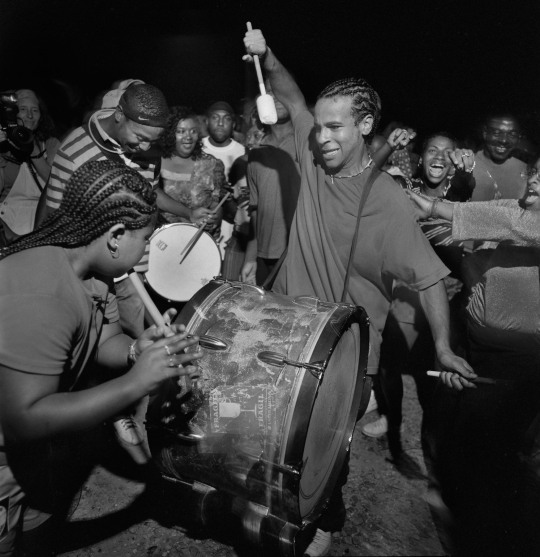
Two words coupled by Harriet Tubman and coined into a credo essential for negotiating the human condition. It's also the title of and invocation to a sublime duo album by Joe McPhee and Hamid Drake released this year as rejoinder to their first recorded ten-years earlier. Taking stock of that decade is something we at Dusted did recently and as the New Year arrives it’s an exercise that feels all the more important, particularly in the extra-musical sense of recognizing the folly of where we’ve been as a world and where we really want to go moving forward. As always, music is both balm and adhesive in remembering that no matter how divisive and discouraging everything seems, we’re still all in it together.
Joe McPhee
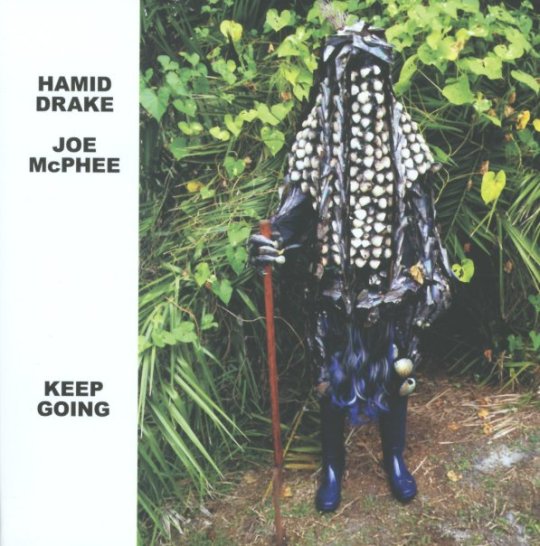
Seventy-nine-years young and still a human dynamo of energy, empathy, and optimism, the Powerhouse from Poughkeepsie’s been a constant of these retrospective essays for as long as I’ve been writing them. I haven’t done a hard count, but his horns grace at least a dozen releases this year. Duos with Mats Gustaffson (Brace for Impact), Fred Lonberg-Holm (No Time Left for Sadness), and Paal Nilssen-Love (Song for the Big Chief) join the dyad denoted above in delivering dialogues as personal as they are potent. Tree Dancing assembles the super-group of Lol Coxhill, Evan Parker, Chris Corsano, and McPhee collectively and in component combinations with bassist John Edwards on board for a culminating cut, while Six Situations realizes a dream of bassist Damon Smith in teaming him with McPhee’s tenor and now dearly departed drummer Alvin Fielder. The Fire Each Time bundles six concerts of McPhee in the company of the DKV Trio from a 2017 tour that took James Baldwin and John Coltrane as lodestones. Saving perhaps the best for last, Invitation to a Dream comingles McPhee’s pocket trumpet and soprano with pedal steel guitarist Susan Alcorn and old confrere Ken Vandermark in a tripart colloquy delivered in crystal clear sound.
Peter Brötzmann

A year younger and another fixture in my yearly firmament, Herr Brötz has always had ears attuned to the early pioneers of improvised music through the unabashed embrace of Sidney Bechet, Coleman Hawkins, and others. Those unerring affections erode some of the surprise from I Surrender Dear, an album of tenor-rendered jazz standards and originals, but also enhance the overall experience in how literally he makes good on the debt. It’s arguably his best solo album since 14 Love Poems and bolstered further by the focus on a single central member of his reed arsenal. Also of note, Fifty Years After commemorating the golden anniversary of Machine Gun with longtime confreres German pianist Alexander von Schlippenbach and Dutch drummer Han Bennink,
Rob Franken Electrification — Functional Stereo Music (678 Records)
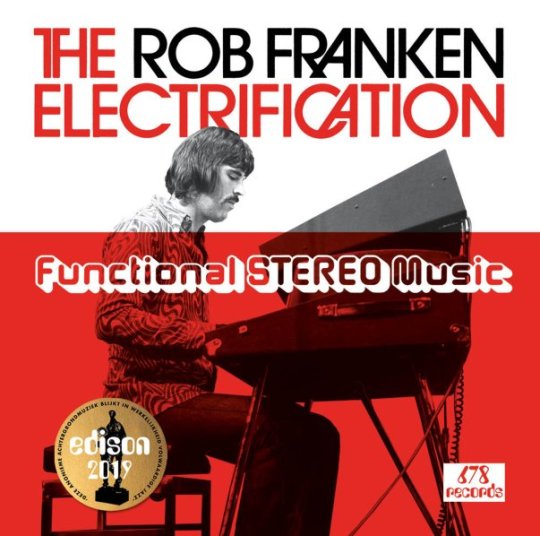
Four-hours of Fender Rhodes heaven recorded in elite Dutch studios between 1972 and 1981 that puzzlingly never found commercial circulation until last year as a six-LP series. The 2019 edition transfers the archive to three-CDs and only rarely flags as Franken’s fonky keys front guitar, bass, drums and a revolving cast of fellow aces fielding other instruments. Economy is the informal edict as morsel-sized originals alternate with covers of tunes by Herbie Hancock, Stevie Wonder, Atilla Zoller, and even Steely Dan. The utilitarian intimations of the title aren’t just lip service. Franken originally envisioned the music as an homage to the muzak strains common to “shopping malls, hotels, elevators, department stores, and airports.” Much of it sounds far better aligned with the kinetic cop and detective pot-boilers that populated television and cinema of the decade.
Brian Groder Trio – Luminous Arcs (Latham)

Keeping a working improvising ensemble together is no minor accomplishment, yet Groder’s been able to maintain one in his name with bassist Michael Bisio and drummer Jay Rosen. This disc joins two previous albums in demonstrating both the depth of the musicians’ bonds and their shared zeal in exploring and capitalizing on them. Any novelty surrounding the particulars of a trumpet-led piano-less trio is fortunately long since lapsed. The precedence allows them to marshal their attention to shaping music that is simultaneously the sum and multiplication of the substantial parts.
V/A — Pakistan: Folk and Pop Instrumentals 1966-1976 (Sublime Frequencies)

Seattle-based Sublime Frequencies weathered a stretch where the “weirdness” quotient of their audio excavations appeared to outweigh accompanying scholarship and attention to edifying annotations. This scintillating compilation suffers no such skew in the balance of carefully sourced sounds and accompanying copy to shore up the context. Sixties rock, specifically surf, is a through-line in the preponderance of reverb-riddled guitars and buzzing Farfisa organ on many of the tracks, but indigenous melodies and rhythms are also frequent fodder for enthusiastic appropriation. Best of all, there’s a pervasive sense of fun to the sequencing that makes it a handy soundtrack for soirees of all sorts.
Jaimie Branch — Fly or Die II (International Anthem)
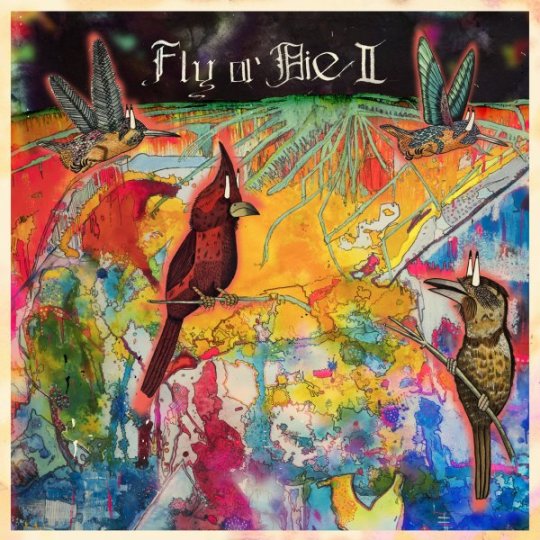
If her ascendant flight pattern is any indication, death, artistic or otherwise, isn’t even an option for Jaimie Branch. This follow-up to her meteoric (and long overdue) 2017 debut builds organically on previous cosmetic aspects (core quartet, cover art, etc.) while making progressive-pronged politics even more prominent. “Prayer for Amerikkka” doesn’t mince words in proffering a platform of resistance and the musical propellant to keep it confidently airborne. A robust touring schedule and well-earned media attention are only furthering Branch’s designs at getting the sounds into as many ears as possible.
Sam Rivers
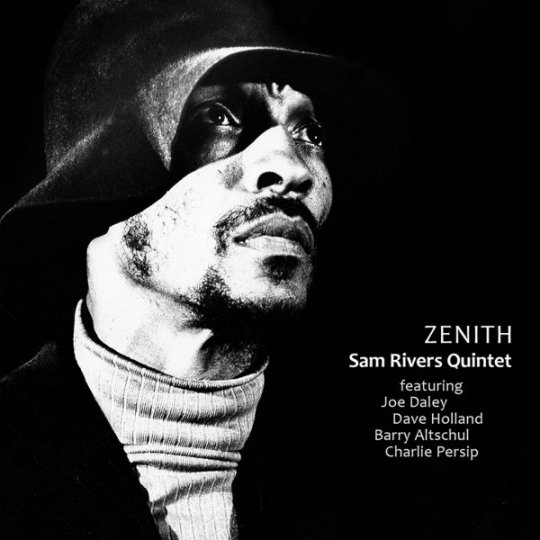
The Sam Rivers Archive Series is the brainchild of producers Danas Mikailionis and Ed Hazell. A projected eight-volume celebration of the music of the eponymous composer/improviser/educator/doyen curated from a vast trove left in the care of Rivers’ daughter after his passing in 2011, it’s also probably the jazz news that most set my heart aflutter with anticipation this year. The initial pair of entries, Emanation and Zenith, certainly live up to the promise in presenting clean fidelity concerts by a high profile trio with bassist Cecil McBee and drummer Norman Conners (pre-disco) and a workshop quintet involving tubaist Joe Daley, bassist Dave Holland and the eight-limbed drums juggernaut of Barry Altschul and Charlie Persip. Both discs are essential.
Jimi Hendrix — Songs for Groovy Children (Experience Hendrix)

Not a long-lost Hendrix kids’ album despite what the jejune title might suggest. Instead, it’s four nearly complete concerts from the guitar deity’s iconic New Year’s Band of Gypsies engagement at the Fillmore East in 1969/70. Producer Eddie Kramer largely quashes his invasive impulses in mastering the tapes, leaving the only real minuses to manifest in the occasionally extra-loose interplay and Jimi’s decision to indulge Buddy Miles’ mic access to a regrettably arguable fault. Math done, there’s nothing stopping an instant trigger-pull for true believers, even folks who have it all already in bootleg form.
Ezz-thetics
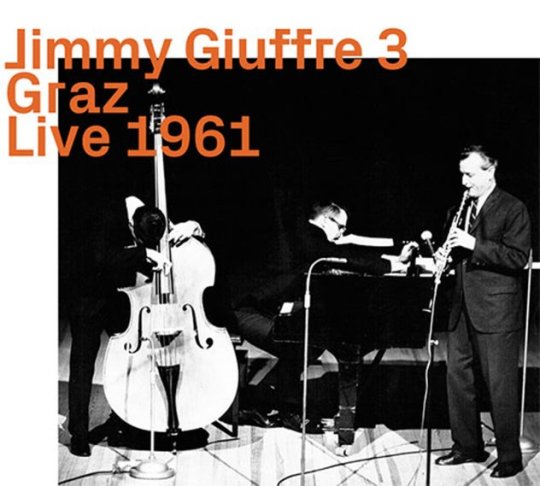
Fingers remain collectively-crossed that Werner X. Uehlingher will one day decide to write an autobiography of his countless adventures as a stalwart producer of improvised music. Ezz-thetics is just the latest chapter in the future tome’s story arc that started with the founding of the Hat Hut label back in 1974. The new imprint, named after a classic George Russell composition, balances reissue and archival releases with new ones, packing them with branding that memorializes the old while consecrating the new. Discs by Jimmy Giuffre (Graz Live 1961), John Coltrane (Impressions Graz 1962), and Albert Ayler (Quartets 1964 Spirits to Ghosts Revisted) are the marquee name highlights, but the entirety of the imprint’s releases to-date have had their merits.
Stephen Riley

The tenorist is no longer my favorite under-forty plier on the instrument simply because he’s aged out of the bracket. Oleo builds on last year’s transparently veiled Sonny Rollins’ tribute Hold ‘Em Joe by adding the sturdy trumpet of Joe Magnarelli to the equation and turning the referential calendar forward to the saxophone colossus’ collaborations with Don Cherry. It’s a beaut from a brisk beginning sortie on “Ornithology” to lengthy slalom on the Ducal “Don’t Get Around Much Anymore.” Tangerine Rhapsody is technically under Dutch drummer Snorre Kirk’s leadership, but it wouldn’t be nearly the album it is absent Riley’s supple and sagacious involvement.
Milt Buckner & Jo Jones — Buck & Jo (Fremeaux & Associates)

Curious about what makes an individual improviser tick? Duo contexts are arguably the best aperture to gain edification and insight. Even better than solo or ensemble configurations, the dyad distills things down to solo and dialogue. This four-disc, four-hour-plus collection is a remarkable case in point and surprise that it even exists at all given its vintage let alone its scope. Thank French impresarios the Panassie Brothers who invited ur swing organist and ur swing drummer to indulge themselves with only the gentlest of producer-dictated strictures. The results are fascinating, whimsical, bombastic, and above all, endlessly entertaining. An epitome of intimately undertaken jazz tête-à-tête before it was anything resembling a regular thing.
Del Shannon — Two Silhouettes (Bear Family)
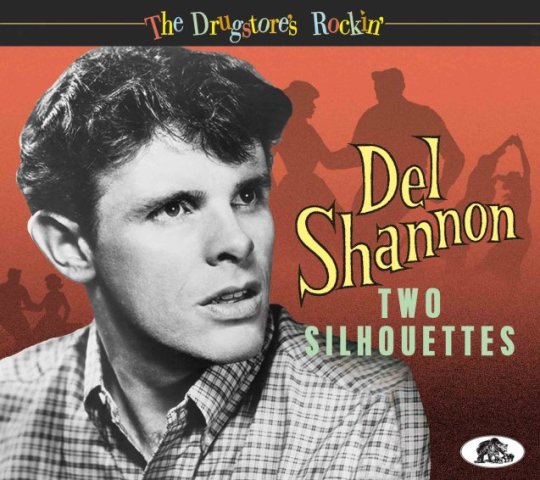
Preconceptions can prove obdurate edifices. Prior to my forty-eighth birthday this year I dismissed Del Shannon as one of the disposable princes of bubble gum pop on the rare occasions he entered my consciousness at all. “Runaway” remains an influential song, particularly in its use of musitron organ, but it’s hardly the makings of unassailable genius. Bear Family’s exhaustive single-disc survey levies a much more convincing appeal for the crooner’s embodiment of a nexus of odd congruencies as moonlighting jazzmen conspire with duck-tailed rockers and barbershop harmonists. Dennis Coffey and Hargus “Pig” Robbins show up as sidemen and there’s even an S&M-tinged canticle called “Torture” replete with whip cracks and a Greek chorus of moans, leaving one to wonder what Ward and June Cleaver made of it all?
Sun Ra
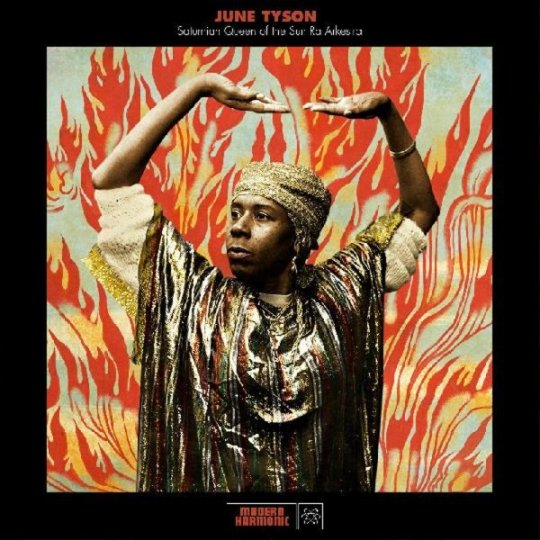
Cosmic Myth and Modern Harmonic continue to advance the mantle apparently abandoned by the Art Yard label in keeping Ra-related albums in circulation. The erstwhile Mr. Mystery employed numerous vocalists throughout his career, even contributing his own less-than-stellar (pun intended) pipes to the cause on occasion. None among that eclectic number could match June Tyson, who brought joie de vivre to the lyrical manifestations of Ra’s cosmic-afro-centrism that was at once wholly believable and infectious. Saturnian Queen of the Sun Ra Arkestra does right by her memory by culling an hour’s worth of highlights from a vast and varied recorded archive. Monorails & Satellites (now in three volumes!) and newly minted editions of Pathways to Unknown Worlds and When Angels Speak of Love were also welcome arrivals.
Derek Bailey/Han Bennink/Evan Parker — Topographie Parisienne: Dunois, April 3rd, 1981 (Fou)
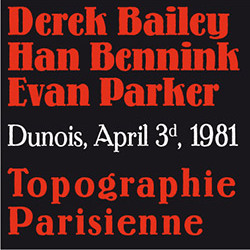
The Topography of the Lungs trio in concert and at length with decent sound eleven-years after their initial seismic contributions to free improv. Bailey and Parker weren’t yet at irreconcilable loggerheads but there’s still a galvanizing and palpable tension that suffuses their interplay. Bennink can’t help being anything but Bennink, bashing away one moment and pattering at barely a whisper the next while keeping ears cocked with split-second focus to the contributions his compatriots. Duos combine with solos from Parker sweeten and season an already delicious aural pot.
Fred Anderson Quartet — Live at the Velvet Lounge Volume V (FPE)
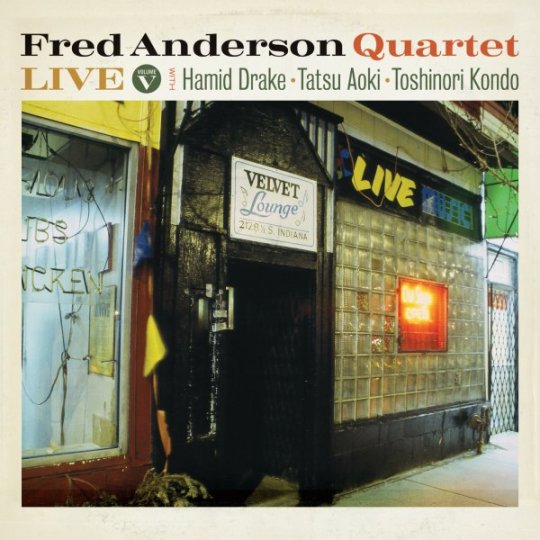
Leftfield guest Toshinori Kondo and drummer Hamid Drake were one half of Peter Brötzmann’s Die Like a Dog outfit when this 1994 concert was committed to tape. That take-no-prisoners context allowed his plangent, frenetic, effects-saturated brass free and ferocious rein. Anderson’s outlets didn’t usually involve electronics and its instructive hearing the adaptations to the roiling controlled-chaos within his customary cerulean-hued improvisations. Drake and bassist Tastu Aoki maintain a stout terrestrial tether enlivened by a revolving array of undulating grooves. Extra points earned for incorporating the original Velvet Lounge wallpaper scheme into the production design. Bottom line: I miss Fred.
V/A — Hillbillies in Hell: Tribulations: Country Music’s Tormented Testament (1952-1974) (The Omni Recording Corporation)

Amusing alliterative appellation aside, this series has managed the no-meager-feat of avoiding diminishing returns while mining the same expanse of time over successive volumes. The fifth entry tilts the lens even more sharply toward the sort of fervent tent show revival circuit favored by fictional religious reprobates like Rev. Harry Powell and Elmer Gantry and comes up with a bonanza off-kilter cuts from names both famous (Hank Williams, Louvin Bros., Tex Ritter) and arcane (The Burton Family, Durwood Daily, The Sunshine Boys Quartet). Ernest Tubb’s “Saturday Satan, Sunday Saint” persuasively sums up the ecumenical ethos, but every song exudes its share of sinful charms.
V/A — Sacred Sounds: Dave Hamilton’s Raw Detroit Gospel (Ace)

As a both prolific and preternaturally talented producer, Dave Hamilton’s usual purview was left-of-center soul and funk. Urban (but not urbane) gospel offered a less-publicized commercial side outlet and he brought comparable emphasis on authenticity and creativity to the various acts he championed. This compilation comprises all-killer-no-filler assemblage that lives up to the unvarnished signifier in the title. It’s nearly eighty-minutes of jangly guitars, tambourines, and impassioned sanctifying and proselytizing of all sorts, as suited for Sunday morning as Friday or Saturday night depending on the preferred mood of your personal household. I’ve enjoyed equal fun plying it in both.
Art Pepper — Promise Kept
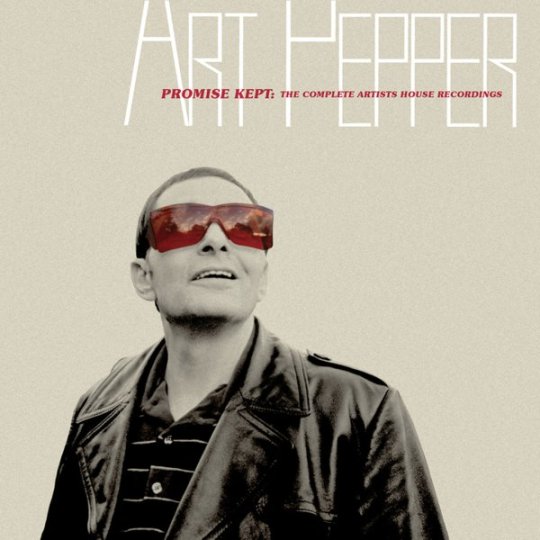
Laurie Pepper, like Sue Mingus and other jazz widows before her, remains a passionate arbiter and steward of her late husband’s recorded legacy. The title of this box set collecting a singular tributary of Art Pepper’s later career aspirations could just as easily serve as a signifier of that bond. In truth, it’s reflective of a pact the couple made with producer John Snyder and a string of studio sessions largely left unissued during the Pepper’s lifetime. Rivalries real and imagined are revealed across the recordings as the altoist wrestles with his insecurities and the realities of choices made and paid for as a consequence of his addictions and fictions. Straightforward and vital, the music avoids gestalt in remaining consistently strong and emotionally true.
Paul Bley/Gary Peacock/Paul Motian — When Will the Blues Leave (ECM)

The prevailing mystery behind this twenty-year-old concert rests on the reason(s) why the fine folks at ECM left it in the can for so long. I don’t have an answer but rather a simple expression of gratitude that they finally decided to rectify the error and get the sounds out into the world. Bley, Peacock and Motian were already three-decades deep in the periodic associations that quietly helped open chamber jazz to free improvisation when they took to the Swiss stage. The ensuing masterful performance manages to feel simultaneously like three old friends shooting the shit and a trio of improvisatory experts operating at peak collective capacity.
Prince — 1999 (Warner)
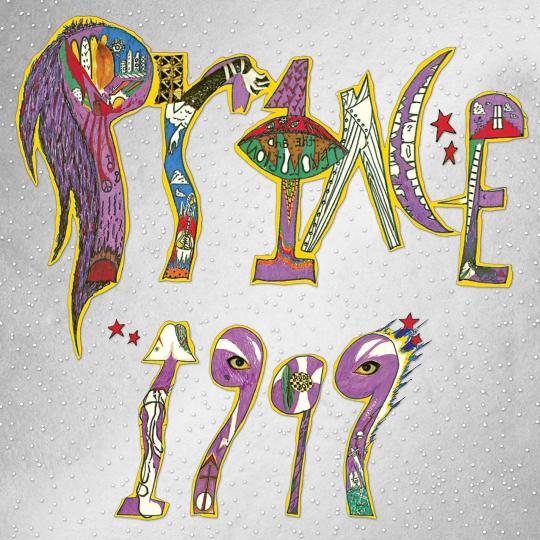
Residency in the Twin Cities for the better part of two decades has resulted in many boons, personal and vocational for this writer. As with any life lived, the red side of the ledger has entries, too. Folded among them is the frictional, frayed listening relationship I harbor with the region’s most famous musical export. Nearly three years after his premature passing Prince is still everywhere and everything here. That perpetual, and perpetually irksome, ubiquity is what makes this five-disc+DVD beyond-exhaustive box so refreshing to my patience-tested purview. It contains lots of impressive material from arguably his most creative and questing period. It also has plenty of songs that feel competent but quotidian by comparison. That blend of bliss and banality is as effective a corrective as I can think of to the cult of purple sainthood that persists around these parts.
And as is my habitual wont, 25 more in no hierarchical order… thank you for reading and Feliz Año Nuevo!
Josh Abrams Natural Information Society (Eremite)
Michael Formanek’s Very Practical Trio – Even Better (Intakt)
Charles Gayle/John Edwards/Mark Sanders – Seasons Changing (Otokroku)
Dudu Pukwana/Han Bennink/Misha Mengelberg – Yi Yole (ICP/Corbett vs. Dempsey)
Nat King Cole – Hittin’ the Ramp: The Early Years (1936-1945) (Resonance)
Willem Breuker & Han Bennink – New Acoustic Swing Duo (ICP/Corbett vs. Dempsey)
Whit Dickey & Kirk Knuffke – Drone Dream (No Business)
Mark Turner & Gary Foster – Mark Turner Meets Gary Foster (Capri)
J.C. Heard & Bill Perkins Quintet – Live at the Lighthouse 1964 (Fresh Sound)
Stan Getz – Getz at the Gate: November 26, 1961 (Verve)
Rita Moss - Queen Moss 1951-1959 (Fresh Sound)
Bill Frisell & Thomas Morgan – Epistrophy (ECM)
Marion Brown & Dave Burrell – Live at the Black Musicians’ Conference, 1981 (No Business)
Jon Irabagon – Invisible Horizon (Irrabagast)
Tom Rainey Trio – Combobulated (Intakt)
Joe Lovano & Enrico Rava Quintet – Roma (ECM)
Tomeka Reid Quartet – Old New (Cuneiform)
Johnny Griffin & Eddie “Lockjaw” Davis – Ow: Live at the Penthouse (Reel to Reel)
Takahashi Miyasaka – Animals Garden (Kojima/BBE)
Tiger Trio (Joelle Leandre/Myra Melford/Nicole Mitchell) – Map of Liberation (Rogue Art)
V/A – Jambu: E Os Miticos Sons da Amazonia (Analog Africa)
V/A – Put the Whole Armour On: Female Black Gospel 1940s/1950s (Gospel Friend)
V/A –Alefa Madagascar: Salegy, Soukous, & Soul from the Red Island (Strut)
Horace Tapscott with the Pan Afrikan Peoples Arkestra and the Great Voice of UGMAA - Why Don’t You Listen? Live at LACMA 1998 (Dark Tree)
Duster – Capsule Losing Contact (Numero)
#dusted magazine#yearend 2019#derek taylor#joe mcphee#peter brotzmann#rob franken electrification#brian groder trio#pakistan folk and pop instrumentals#jaimie branch#sam rivers#jimi hendrix#ezz-thetics#stephen riley#milton buckner#jo jones#del shannon#sun ra#derek bailey#han bennink#evan parker#fred anderson quartet#hillbillies in hell#Sacred Sounds: Dave Hamilton’s Raw Detroit Gospel#paul bley#gary peacock#paul motian#prince
10 notes
·
View notes